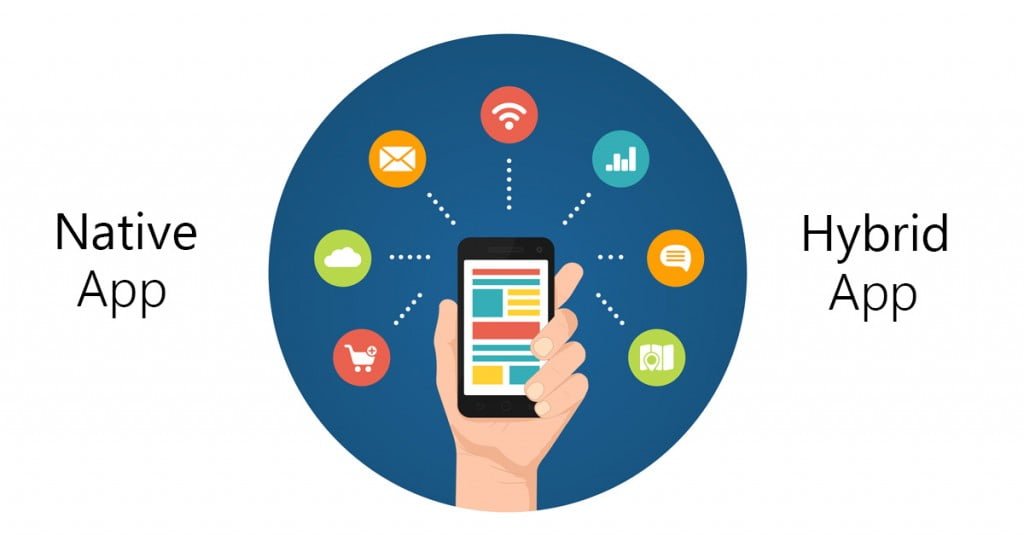Most of the people have smart phones today and these phones are actually very useful. It makes our lives easier and do many things for us. There is no limit of work done by such phones it includes e-mails, online shopping, online payment, social networking, watching movies etc. In fact all these tasks are done with the help of mobile apps. Apps are generally two types. These Mobile applications are native application or a hybrid one.
Native Apps
A native app is a smartphone application that is made for specific platforms. These apps are developed to be used on particular devices specifically for a particular mobile operating system. Native apps are native to the OS of the device and hence these are built on the guidelines given by that specific operating system.
Advantages of Native Apps
Native Apps use the native language of the platform where they will suppose to reside like Objective-C on iOS, and Java on Android. The main advantage of native applications is their better performance. These apps are easy to learn for users as User Interface is quite simple. These are faster and more reliable. In short, these apps provide better performances, highest security, and best user experience. Native apps support offline mode.
Example of Native App: Angry Birds, Shazam, Mobiloud
Hybrid Apps
A hybrid app is in fact a web app built using HTML5 and JavaScript technologies. These apps are wrapped in a native container. This container loads on demand information on the particular page when user navigates application. The main appeal of a hybrid app is versatility. These apps are built once and release without knowing the operating system. These are useful and work fine across multiple platforms. One UI – nice and simple is enough to functioning, these hybrid apps on any device. Hybrid apps do not support an offline mode
Advantages of Hybrid Apps
Hybrid apps are installed on any device unlike native apps so it take less time to market your product as any user can install or run these apps without any issues of compatibility. Other advantage is one code base is enough for all kinds of platforms. No need to make separate apps for android or iOS devices.
Examples of hybrid apps: Facebook, TuneIn Radio, LinkedIn.
Comparison
Hybrid application can be released across platforms at once. Hybrid applications are demand base applications where data often downloaded from servers when it is needed. Native apps instead install major amount of data when the user first installs the app on device. Hybrid application gives liberty to change platforms anytime you need. The main shortcoming of hybrid apps is that they are not as fast as native apps. The performance of the Hybrid app fluctuates on real time basis. The number of server requests is the major concern. If more people are making calls to the same server at the same time then these apps will be slow.
Summary
The choice of users and developers plays important role which type of app is best suitable for you. They have their strengths and weaknesses and have specific domain of utilization and it is up to the need of business or individual which of them fits better in the scenario.

